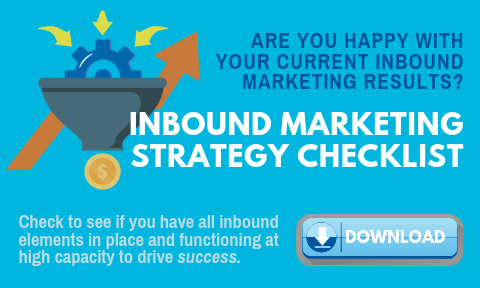Answers to the Top 9 SEO FAQs
Disappointed by your website’s traffic? The problem may lie with your SEO efforts. Prospects typically find your website in five ways: Through a...
3 min read
 Maryanne McWhirter
:
August 5, 2020
Maryanne McWhirter
:
August 5, 2020
.jpeg)
.jpeg?width=2121&name=7%20Questions%20to%20Ask%20if%20Your%20Website%20Isn%E2%80%99t%20Ranking%20in%20Google%20(And%20What%20to%20Do%20About%20It).jpeg)
“Why is my website not ranking on Google?” As inbound marketers, we’re asked this question repeatedly, and it’s a valid concern because 75% of people don’t scroll past the first page on a Google search. You work hard to maintain an online presence — you deserve to be seen!
As you’ve noticed, ranking on the first page of Google is easier said than done. When your site doesn’t rank, it could be one, or possibly a few, things that aren’t functioning correctly. These problems often hurt the performance of the entire website. The good news is that once you diagnosis the problem, many of them are easy to fix.
While there are many ways new prospects land on your website — including email marketing, paid search, social media, and direct traffic —93% of online experiences begin with a search engine. It’s indisputable that organic search is the most desired source of traffic to your website — it’s free, brings exposure, website traffic, and conversions. Organic traffic encompasses all the people who don't already know you but have a problem you can solve. Google determines if your website is a solution to their search and if you have resources or educational content that would be valuable.
We all agree creating a website that attracts organic traffic is crucial. Now, how do you tell Google to rank your site? While the list of ways to optimize your website is long, we've compiled seven foundational questions you should ask yourself (and then apply action steps to) in order to increase your search engine optimization.
First and foremost, ask yourself what keywords you aim to rank for. Not sure what those are? There are several free SEO tools online to help with this. Once you choose the keywords, you want to optimize them on your site. It’s easy to get fixated on optimizing keywords in blog posts, but each page of your website needs to include keyword strategy.
The most important and valuable way to create optimized content is through a regularly updated blog. Are you consistently blogging and producing relevant content? More specifically, is your content an authentic representation of your voice and brand, or does it come across as a cheesy sales pitch? It’s very important to make your content about the user and not about your company.
Google ranks websites that give users honest information, not websites just trying to make a sale. Write authentic content on your website (and your blog) for your user, not for you. Be a trusted resource, and Google will reward you!
If visitors come to your website, then exit out quickly because the navigation is confusing, or information unclear, your site’s bounce rate will be high. Google doesn't like websites with high bounce rates. Simplify your message and your users’ path to get answers. Arrange your navigation and homepage information to give a visitor information within seconds of landing on your page.
Search engines really don’t like a website that takes too long to load. It’s 2020, and attention spans are short! Don’t let visitors to your website disengage before they even have a chance to read something.
Insights on your page speed are just a click away with this Google tool. Check your website's load speed to be sure this isn't what is affecting your website’s ranking.
Link building is an important part of SEO strategy. Google is on the hunt for validation of your website from others and vice versa. To learn more about the nitty gritty of link building on your site check out this article from HubSpot.
It sounds obvious, but it’s a setting many don’t think to check. Some good news is that there are several free tools online to help you quickly determine if your website has this problem. This is a site that will test your website pages for “no-index” tags.
If you’re having trouble getting Google to rank your site, check each page of your site to see if it’s being indexed.
The age-old question: does social media really help my SEO? Yes, social media presence can and does help increase visibility on search engine results. Google crawls social media sites in a similar way to how it crawls websites. Build an engaged social community, and your website will benefit.
Improving your rank on Google is a process. While the list above is a great place to start, it’s not all inclusive. Ranking on the first page of Google is a complicated and time-consuming process. It’s not something you can perfect and move on from. Start here, today, with the steps above to improve your ranking.

Disappointed by your website’s traffic? The problem may lie with your SEO efforts. Prospects typically find your website in five ways: Through a...

SEO is one of the most critical strategies for B2B marketers. A strong SEO strategy is an excellent way to increase visibility and leads to more...

In the world of digital marketing, content is king. But what good is great content if no one can find it? That's where an SEO team comes in. By...